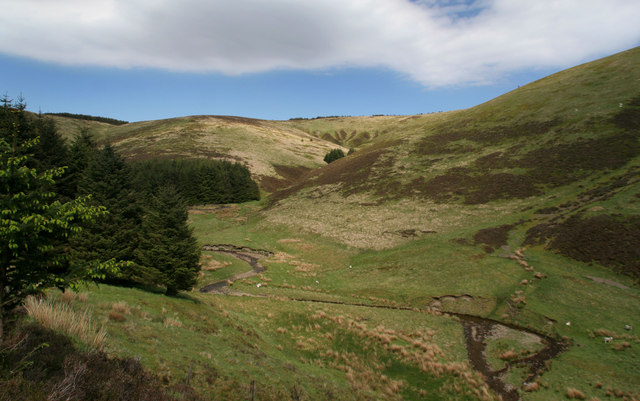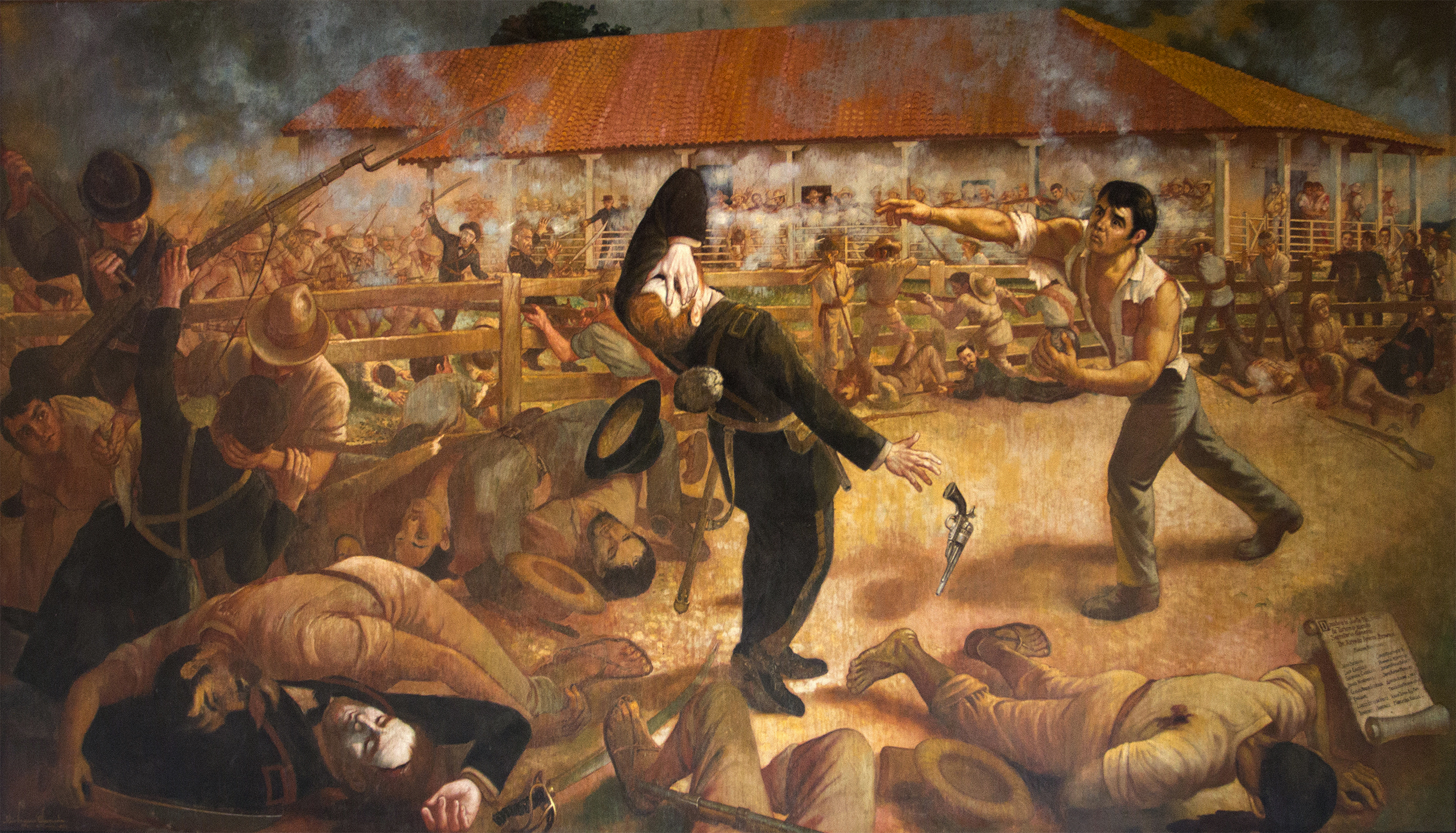|
William Armstrong (Christie's Will)
William Armstrong (1565–1649), known as Christie's Will, was a Scottish Borders freebooter of the 17th century, celebrated in a ballad by Sir Walter Scott. Biography William Armstrong was the son of the Christie Armstrong referred to in the ballad of ''Johnnie Armstrong'' as "Kristy my son", and inherited Gilnockie Tower. Having been imprisoned in the Tolbooth, Jedburgh, for stealing two colts during a marauding expedition, he received his release through the interposition of the Earl of Traquair, lord high treasurer, and henceforth became devoted heart and soul to the earl's interests. Some time afterwards a lawsuit, in which the Earl of Traquair was a party, was on for trial in the Court of Session, Edinburgh. The decision, it was supposed, would turn on the opinion of the presiding judge, Sir Alexander Gibson, Lord Durie I (who took the name as his judicial title when he bought the Durie land from the family of that name). He was known to be unfavourable to Lord Traquair. Arm ... [...More Info...] [...Related Items...] OR: [Wikipedia] [Google] [Baidu] |
Scottish Borders
The Scottish Borders ( sco, the Mairches, 'the Marches'; gd, Crìochan na h-Alba) is one of 32 council areas of Scotland. It borders the City of Edinburgh, Dumfries and Galloway, East Lothian, Midlothian, South Lanarkshire, West Lothian and, to the south-west, south and east, the English counties of Cumbria and Northumberland. The administrative centre of the area is Newtown St Boswells. The term Scottish Borders, or normally just "the Borders", is also used to designate the areas of southern Scotland and northern England that bound the Anglo-Scottish border. Geography The Scottish Borders are in the eastern part of the Southern Uplands. The region is hilly and largely rural, with the River Tweed flowing west to east through it. The highest hill in the region is Broad Law in the Manor Hills. In the east of the region, the area that borders the River Tweed is flat and is known as 'The Merse'. The Tweed and its tributaries drain the entire region with the river flowi ... [...More Info...] [...Related Items...] OR: [Wikipedia] [Google] [Baidu] |
Moffat
Moffat ( gd, Mofad) is a burgh and parish in Dumfriesshire, now part of the Dumfries and Galloway local authority area in Scotland. It lies on the River Annan, with a population of around 2,500. It was a centre of the wool trade and a spa town. Moffat is around to the southeast of Glasgow, southwest of Edinburgh, northeast of Dumfries and northwest of Carlisle. The Moffat House Hotel, located at the northern end of the High Street, was designed by John Adam. The nearby Star Hotel, a mere 20 ft (6 m) wide, was listed in the Guinness Book of Records as the narrowest hotel in the world. Moffat won the Britain in Bloom contest in 1996. Moffat is home to Moffat toffee. The town is held to be the ancestral seat of Clan Moffat. The Devil's Beef Tub near Moffat was used by the members of Clan Moffat and later the members of Clan Johnstone to hoard cattle stolen in predatory raids. Early tourism as a spa town From 1633 Moffat began to grow from a small village into a ... [...More Info...] [...Related Items...] OR: [Wikipedia] [Google] [Baidu] |
1658 Deaths
Events January–March * January 13 – Edward Sexby, who had plotted against Oliver Cromwell, dies in the Tower of London. * January 30 – The " March Across the Belts" (''Tåget över Bält''), Sweden's use of winter weather to send troops across the waters of the Danish straits at a time when winter has turned them to ice, begins. Within 17 days, Sweden's King Karl X Gustav leads troops across the ice belts to capture six of Denmark's islands as Swedish territory. * February 5 – Prince Muhi al-Din Muhammad, one of the sons of India's Mughal, Emperor Shah Jahan, proclaims himself Emperor after Jahan names Muhi's older brother, Dara Shikoh, as regent, and departs from Aurangabad with troops. * February 6 – Swedish troops of Charles X Gustav of Sweden cross The Great Belt in Denmark, over frozen sea. * March 8 (February 26 OS) – The peace between Sweden and Denmark is concluded in Roskilde by the Treaty of Roskilde, under which Denmark ... [...More Info...] [...Related Items...] OR: [Wikipedia] [Google] [Baidu] |
1600s Births
Sixteen or 16 may refer to: *16 (number), the natural number following 15 and preceding 17 *one of the years 16 BC, AD 16, 1916, 2016 Films * '' Pathinaaru'' or ''Sixteen'', a 2010 Tamil film * ''Sixteen'' (1943 film), a 1943 Argentine film directed by Carlos Hugo Christensen * ''Sixteen'' (2013 Indian film), a 2013 Hindi film * ''Sixteen'' (2013 British film), a 2013 British film by director Rob Brown Music *The Sixteen, an English choir *16 (band), a sludge metal band * Sixteen (Polish band), a Polish band Albums * ''16'' (Robin album), a 2014 album by Robin * 16 (Madhouse album), a 1987 album by Madhouse * ''Sixteen'' (album), a 1983 album by Stacy Lattisaw *''Sixteen'' , a 2005 album by Shook Ones * ''16'', a 2020 album by Wejdene Songs * "16" (Sneaky Sound System song), 2009 * "Sixteen" (Thomas Rhett song), 2017 * "Sixteen" (Ellie Goulding song), 2019 *"16", by Craig David from ''Following My Intuition'', 2016 *"16", by Green Day from ''39/Smooth'', 1990 *"16", by ... [...More Info...] [...Related Items...] OR: [Wikipedia] [Google] [Baidu] |
Year Of Birth Uncertain
A year or annus is the orbital period of a planetary body, for example, the Earth, moving in Earth's orbit, its orbit around the Sun. Due to the Earth's axial tilt, the course of a year sees the passing of the seasons, marked by change in weather, the hours of daylight, and, consequently, vegetation and soil fertility. In temperate and subpolar climate, subpolar regions around the planet, four seasons are generally recognized: spring (season), spring, summer, autumn and winter. In tropics, tropical and subtropics, subtropical regions, several geographical sectors do not present defined seasons; but in the tropics#Seasons and climate, seasonal tropics, the annual wet season, wet and dry seasons are recognized and tracked. A calendar year is an approximation of the number of days of the Earth's orbital period, as counted in a given calendar. The Gregorian calendar, or modern calendar, presents its calendar year to be either a common year of 365 days or a leap year of 366 days, a ... [...More Info...] [...Related Items...] OR: [Wikipedia] [Google] [Baidu] |
River Eden, Cumbria
The River Eden is a river that flows through the Eden District of Cumbria, England, on its way to the Solway Firth. Etymology The river was known to the Romans as the ''Itouna'', as recorded by the Greek geographer Claudius Ptolemaeus (Ptolemy) in the 2nd century AD. This name derives from the Celtic word ''ituna'', meaning ''water'', or ''rushing''. Thus there is no relation to the biblical Garden of Eden. Course of river The Eden rises in Black Fell Moss, Mallerstang, on the high ground between High Seat, Yorkshire Dales and Hugh Seat. Here it forms the boundary between the counties of Cumbria and North Yorkshire. Two other rivers arise in the same peat bogs here, within a kilometre of each other: the River Swale and River Ure. It starts life as Red Gill Beck, then becomes Hell Gill Beck, before turning north and joining with Ais Gill Beck to become the River Eden. (Hell Gill Force, just before it meets Ais Gill Beck, is the highest waterfall along its journey to the sea ... [...More Info...] [...Related Items...] OR: [Wikipedia] [Google] [Baidu] |
Oliver Cromwell
Oliver Cromwell (25 April 15993 September 1658) was an English politician and military officer who is widely regarded as one of the most important statesmen in English history. He came to prominence during the 1639 to 1651 Wars of the Three Kingdoms, first as a senior commander in the Parliamentarian army and then as a politician. A leading advocate of the execution of Charles I in January 1649, which led to the establishment of the Republican Commonwealth of England, Scotland and Ireland, he ruled as Lord Protector from December 1653 until his death in September 1658. Cromwell nevertheless remains a deeply controversial figure in both Britain and Ireland, due to his use of the military to first acquire, then retain political power, and the brutality of his 1649 Irish campaign. Educated at Sidney Sussex College, Cambridge, Cromwell was elected MP for Huntingdon in 1628, but the first 40 years of his life were undistinguished and at one point he contemplated emigration to ... [...More Info...] [...Related Items...] OR: [Wikipedia] [Google] [Baidu] |
Carlisle, Cumbria
Carlisle ( , ; from xcb, Caer Luel) is a city that lies within the Northern English county of Cumbria, south of the Scottish border at the confluence of the rivers Eden, Caldew and Petteril. It is the administrative centre of the City of Carlisle district which, (along with Cumbria County Council) will be replaced by Cumberland Council in April 2023. The city became an established settlement during the Roman Empire to serve forts on Hadrian's Wall. During the Middle Ages, the city was an important military stronghold due to its proximity to the Kingdom of Scotland. Carlisle Castle, still relatively intact, was built in 1092 by William Rufus, served as a prison for Mary, Queen of Scots in 1568 and now houses the Duke of Lancaster's Regiment and the Border Regiment Museum. In the early 12th century, Henry I allowed a priory to be built. The priory gained cathedral status with a diocese in 1133, the city status rules at the time meant the settlement became a city. Fro ... [...More Info...] [...Related Items...] OR: [Wikipedia] [Google] [Baidu] |
Wars Of The Three Kingdoms
The Wars of the Three Kingdoms were a series of related conflicts fought between 1639 and 1653 in the kingdoms of Kingdom of England, England, Kingdom of Scotland, Scotland and Kingdom of Ireland, Ireland, then separate entities united in a personal union under Charles I of England, Charles I. They include the 1639 to 1640 Bishops' Wars, the First English Civil War, First and Second English Civil Wars, the Irish Confederate Wars, the Cromwellian conquest of Ireland and the Anglo-Scottish war (1650–1652). They resulted in victory for the Roundhead, Parliamentarian army, the execution of Charles I, the abolition of monarchy, and founding of the Commonwealth of England, a Unitary state which controlled the British Isles until the Stuart Restoration in 1660. Political and religious conflict between Charles I and his opponents dated to the early years of his reign. While the vast majority supported the institution of monarchy, they disagreed on who held ultimate authority. Cavalier, ... [...More Info...] [...Related Items...] OR: [Wikipedia] [Google] [Baidu] |
Dryfe Water
Dryfe Water is a river in Scotland about 18 miles in length which flows into the River Annan at , near Lockerbie. It starts at on the southern slopes of Loch Fell, near Moffat, and then flows along a narrow valley to the Annan. Dryfe Water gives its name to the parish, Dryfesdale, and the common Scottish surname, Drysdale. A second name is the much less common surname Dryfe (or Drife). The meaning of the word Dryfe is unknown. It may be from the Old Norse, Anglo-Saxon or Brittonic languages which were all used at different times in Dumfriesshire Dumfriesshire or the County of Dumfries or Shire of Dumfries (''Siorrachd Dhùn Phris'' in Gaelic) is a historic county and registration county in southern Scotland. The Dumfries lieutenancy area covers a similar area to the historic county. I .... References Rivers of Dumfries and Galloway {{Scotland-river-stub ... [...More Info...] [...Related Items...] OR: [Wikipedia] [Google] [Baidu] |
Filibuster (military)
A filibuster (from the Spanish ''filibustero''), also known as a freebooter, is someone who engages in an unauthorized military expedition into a foreign country or territory to foster or support a political revolution or secession. The term is usually applied to United States citizens who incited insurrections across Latin America, particularly in the mid-19th century, usually with the goal of establishing an American-loyal regime that may later be annexed into the United States. Probably the most notable example is the Filibuster War initiated by William Walker in Nicaragua. Filibusters are irregular soldiers who act without official authorization from their own government, and are generally motivated by financial gain, political ideology, or the thrill of adventure. Unlike mercenaries, filibusters are independently motivated and work for themselves, whilst a mercenary leader operates on behalf of others. The freewheeling actions of the filibusters of the 1850s led to the n ... [...More Info...] [...Related Items...] OR: [Wikipedia] [Google] [Baidu] |






